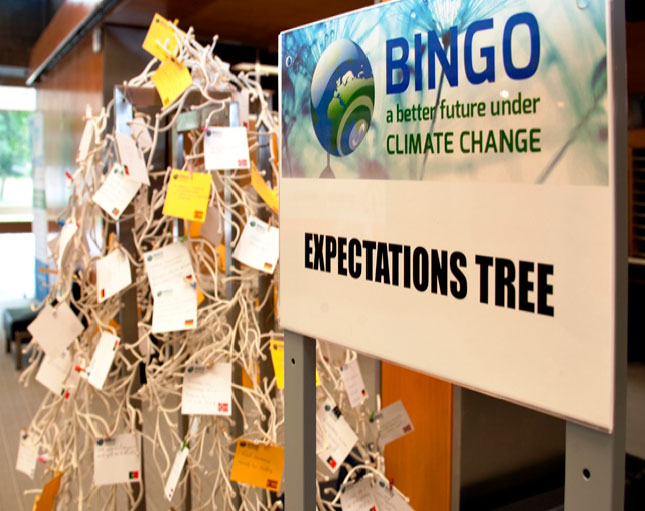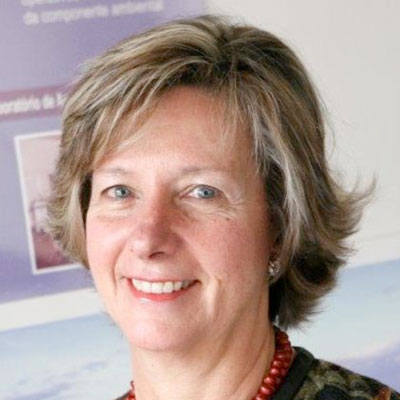I am happy and proud to be approaching the final leg of a four-year journey of intense teamwork, joy and friendship in the coordination of the H2020 project BINGO – Bringing INnovation to onGOing water management – a better future under climate change. The BINGO family includes 20 Partners from six European countries and more than 70 participants. Started in July 2015, BINGO will close its project activities in June 2019, although importantly the exploitation of its outputs and impact will live on. The BINGO family is very pleased to share the project results in collaboration with ECCA 2019.
BINGO assessed the impact of climate change on the integrated water cycle through the promotion of risk management strategies and adaptation measures to reduce vulnerabilities and enhance resilience. The results are demonstrated through 6 research sites in Norway, the Netherlands, Germany, Spain, Cyprus and Portugal – with real people, real problems, adaptation strategies and measures. The research sites cover a variety of issues – including extreme floods and droughts, as well as conflicts involving water by different economic sectors such as urban environment, tourism, agriculture, food safety, hydroelectricity. There is a clear and wide potential for replication of the solutions developed for other regions both inside and outside Europe.
BINGO has achieved downscaled climate data for present and past conditions provided as decadal predictions (2015–2024). The usability of the different climate model outputs has been maximised for each of the six research sites, through bias correction and downscaling using ensemble techniques, as well as being properly evaluated by suitable forecast verification approaches. Simulations have also been completed. The decadal projections have been dynamically downscaled to the same horizontal resolution. Work to identify extreme patterns for each research site was successfully done.
A web-based and on-demand extraction and conversion tool has been set up, allowing the hydrological modelling groups to search and extract the data and then convert it to their needs. This tool is publicly available upon request on the BINGO website and will be exhibited at the ECCA 2019 Tool-shed Session. An integrated analysis of the water cycle for all six research sites, based on several hydrological, hydrodynamics and water quality models, was implemented. Hydrological droughts and floods were carefully evaluated in the context of climate change. The analysis was provided as part of the baseline situation and for future scenarios that combine climate change with land use change; the modelling work was developed to take into consideration a range of different situations for the water cycle.
Results were used to complete the risk management process. A framework for managing risks is proposed – providing a route from the development of the climate scenarios to climate change adaptation strategies, and aiming to help sustain key economic sectors and the environment, as well as protecting people and property. The development of specific risk treatments and a portfolio of adaptation strategies for each of the six research sites is also provided, as well as an analysis of the economic and societal implications of the climate change-induced impacts and of the proposed measures.
The effective participation of all types of end-users, water managers and decision-makers in BINGO activities was a key aspect. BINGO has published a set of tools – benefiting from the project’s experience – to ensure that researchers and end-users/decision-makers can really co-operate, building shared awareness and knowledge, leading to high-level research designed to provide answers to society’s needs.
BINGO believes that, to address climate change, we need better and earlier knowledge about the future state of the climate, and more participatory governance practices to identify risks and instigate adaptation measures. BINGO focuses on the link between state-of-the art climate science and the real challenges that local stakeholders face – a link that is key to the joint specification and implementation of adaptation measures. The co-production dynamics help drive the launch of participatory governance solutions and ensure better decision-making, providing outputs and recommendations to integrate both exposures (data) and adaptation (actions), while incorporating what matters in each site with Human Factor Dynamics.
For all of these reasons, the BINGO team is honored to actively take part in the organisation of ECCA 2019 through participation in the Executive, Organising and Local Advisory Committees. BINGO will present 23 oral presentations and posters, distributed through the conference themes and will co-organise a session together with the H2020 project BRIGAID. BINGO also contributed 15 reviewers and conveners to the conference. We expect to have more than 50 BINGO participants at ECCA 2019 and are enthusiastically preparing our presence.
ECCA 2019 is the right moment to look back and to compare the BINGO stakeholders’ expectations identified in the BINGO Expectations tree – LISBON Kick off meeting (July 2015) and what emerges at the end of our journey! (see figure).
ECCA 2019 is the right place to promote BINGO’s life and legacy. Do not miss it!



